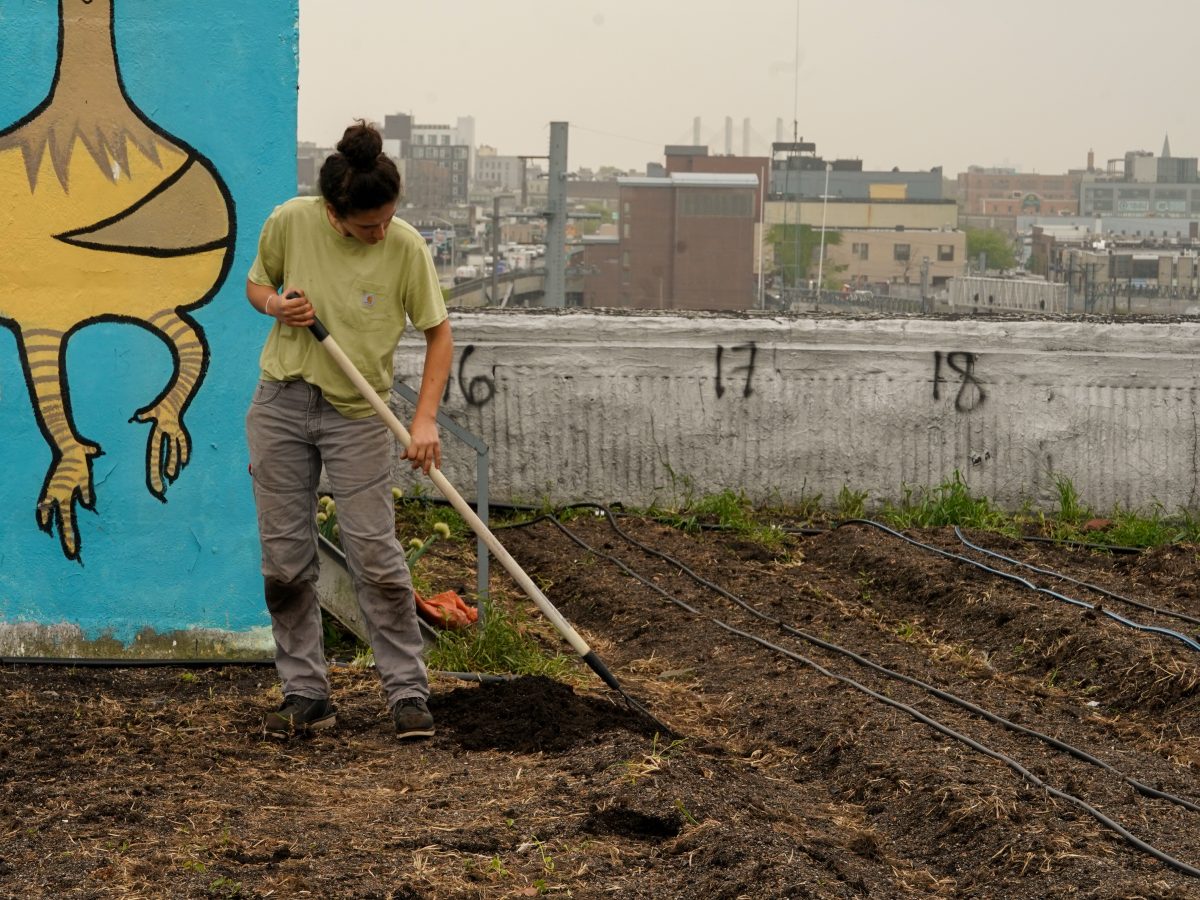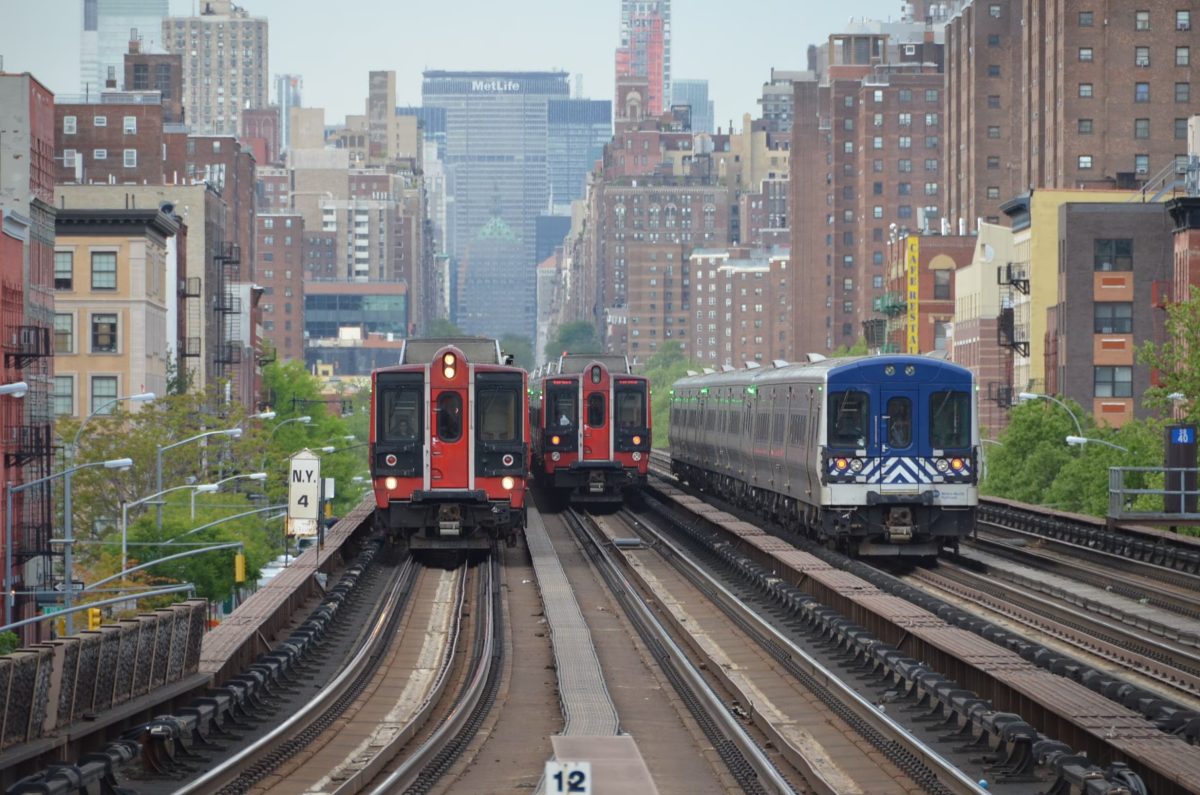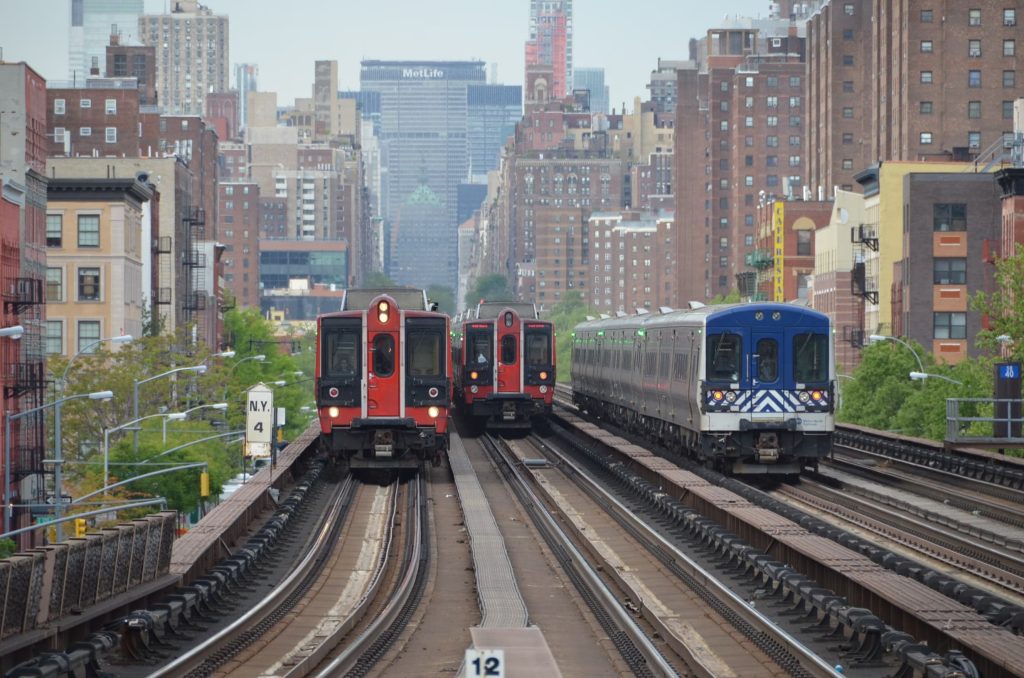A New Urban Farm Is Ready For Field Trips in LIC

The first spring vegetables are planted on the rooftop of the Standard Motor Products Building. Credit: Jean Brannum
JEAN BRANNUM
jbrannum@queensledger.com
On top of the Standard Motor Products Building in Long Island City awaits an upcoming farm with a view of the Manhattan skyline.
The Variety Boys and Girls Club of Queens took over the rooftop from Brooklyn Grange and announced the project to turn the place into an urban farm in August 2023. There is still a long way to go in construction and growing crops, but the rooftop is functional and ready for its first visitors.
Michael White, a landscape architect, and owner of Symbio Design, said that it was a challenge to get the project far along enough to meet the visitor schedule and agricultural demands, but the place is ready to welcome field trips which started Monday. His firm has completed many rooftops for human use, but this is his first rooftop farm.
What was once an uncultivated rooftop garden, now has lines of plant beds and stones to create a landing platform once people exit the elevator. On the east side is a circle that will soon have benches for classes to gather for instruction. On the west side is a long table from when Brooklyn Grange owned the place. The table is made from recycled wood. Classes will eat their lunches with a view of the city around them.

A table made of recycled wood stands on the west side where visitors can eat and gather. Credit: Jean Brannum
The farm is meant to teach children about growing their own produce and maintaining farms. The farm will host field trips about three times per week until the end of the school year, then summer camps until the next school year starts in the fall. A canopy under the water tower is congested with boxes and wood. But soon, it will be a spot for children to clean their harvested crops to cook them, according to White. Farm Manager Alexa Curnutte is working with the Boys and Girls Club to create a curriculum for programs.
Many rows are growing the first cool-weather spring crops including lettuce, scallions, and radishes.
The next phase of the project will work on the west side of the rooftop. White says that a new greenhouse will replace the old one. The current greenhouse is halfway full of the upcoming summer crops, according to Curnutte.
Curnutte started urban farming in New York City in 2022. She has experience working for nonprofit organizations to connect children to agriculture.
“I think that giving kids the opportunity to understand where their food comes from, especially in a place like New York is just so exciting,” Curnutte said.” And I certainly wish that I had had something like this when I was their age.”
When asked what he hoped visitors would gain from the urban farm, White responded “to get some insight into how food is produced and the active role they can take in it.”

Assistant Manager Abby Avital prepares the farm for its first visitors. Credit: Jean Brannum
In addition to the farming areas, the farm will also have three bee hives to act as a landing area for the many bees buzzing around New York City. Curnutte said that bees can fly up to three miles to pollinate places, so it is likely that bees will frequently come and go to different landing places including these. She also said that it would allow her to teach ecology and biology.
Above all, Curnutte hopes that kids will get to see how they interact with the agriculture industry in their daily lives through this urban farm.
“I’m really just here to help them steward it into the direction that inspires them and to create a healthy farm for them that will grow healthy food for them to eat and to enjoy and experience.”
Outside of programming for children, the farm will also be an event space, according to White. Phase two includes producing a canopied area to be an event venue.





 Congestion pricing means higher tolls for commuters who travel daily to Manhattan below 60
Congestion pricing means higher tolls for commuters who travel daily to Manhattan below 60